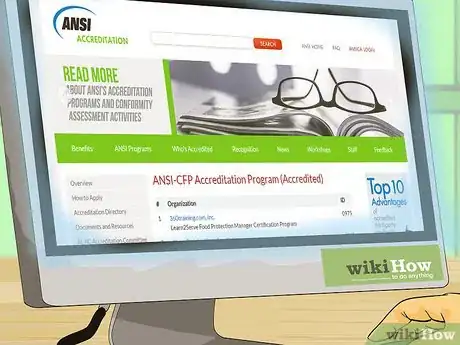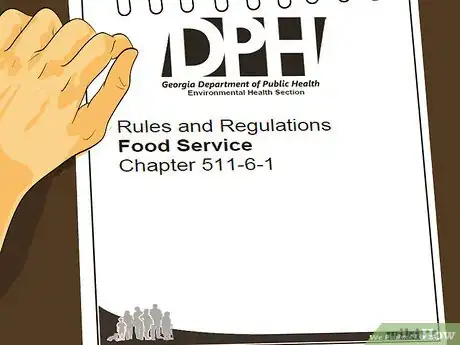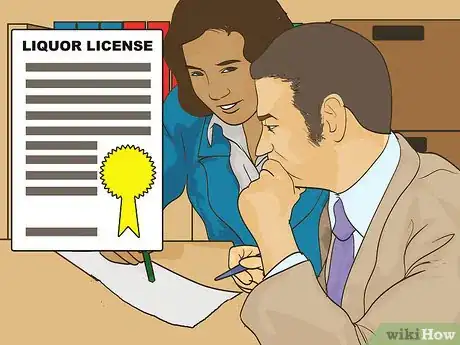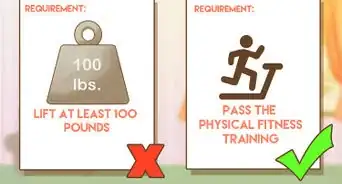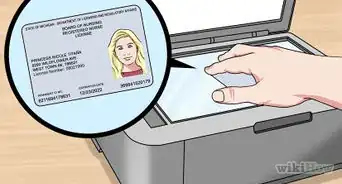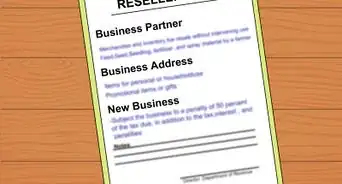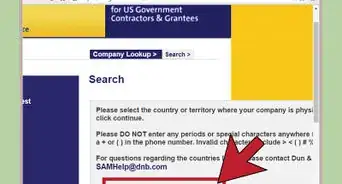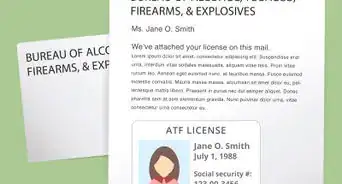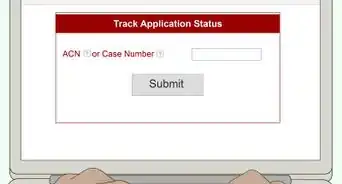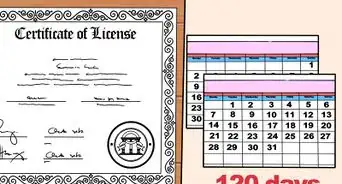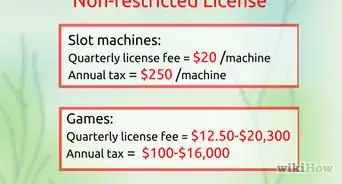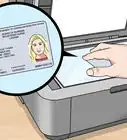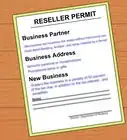This article was co-authored by wikiHow Staff. Our trained team of editors and researchers validate articles for accuracy and comprehensiveness. wikiHow's Content Management Team carefully monitors the work from our editorial staff to ensure that each article is backed by trusted research and meets our high quality standards.
wikiHow marks an article as reader-approved once it receives enough positive feedback. In this case, 87% of readers who voted found the article helpful, earning it our reader-approved status.
This article has been viewed 76,947 times.
Learn more...
If you want to open a catering business in Georgia, then you’ll need to establish your business as a legal entity and obtain necessary licenses and permits. Then you can apply to the Georgia Department of Public Health for a food services permit that will let you work as a caterer. If you want to sell alcohol, you must obtain liquor licenses as well. Because the process of setting up any new business can be complicated, you should contact a nearby business development center with questions.
Steps
Forming Your Catering Business
-
1Create your business as a legal entity. Your business must exist as a legal entity before you can apply to run a commercial food service operation. Your catering business could take one of the following forms. Analyze which is best for you:
- Sole proprietorship. This is the easiest form to take. Instead of filing paperwork with your state, you register with your county. You report any business profits and losses on your regular IRS Form 1040. However, you are personally responsible for all business debts. If someone gets sick from your food and sues you, then they can get your personal assets.
- Limited liability company. You create an LLC with your state by filing Articles of Organization with the Secretary of State’s office at 404-656-2817 or www.sos.ga.gov/corporations. An LLC shields its owners from personal responsibility for business debts.
- Partnership. Two or more people can form a partnership when they agree to run a business jointly. You don't have to file paperwork with the state, though you should have a partnership agreement. Like a sole proprietorship, you are personally responsible for partnership debts and other liabilities.
- Corporation. Corporations are owned by shareholders and file Articles of Incorporation with the Secretary of State’s office. Like LLCs, corporations shield you from personal liability for business debts. Unless your catering operation is really big, you probably won’t form a corporation.
-
2Apply for tax IDs. You’ll need tax identification numbers so that you can pay necessary taxes to both the state and federal governments. You can get your numbers from the following:
- Contact Georgia’s Department of Revenue: https://dor.georgia.gov/.
- For a federal Employer Identification Number (EIN), visit the IRS website here: https://www.irs.gov/businesses/small-businesses-self-employed/apply-for-an-employer-identification-number-ein-online. If you’re a sole proprietor, you won’t need an EIN. Instead, you can use your Social Security Number.
Advertisement -
3Obtain a business license. In Georgia, you obtain business licenses locally from your city hall or from your local courthouse.[1] You can find out more information by contacting the Chamber of Commerce or development authority in your county or city.
- Get a list of requirements from city hall or the courthouse so that you will complete everything before applying for your license.
- You must file an annual registration each year.
-
4Establish a base of operations. You cannot operate a catering business in Georgia out of a private home. Instead, you will need to find a kitchen that complies with the state’s health and safety rules applicable to food service businesses.
- You may have to work with a real estate agent to find appropriate commercial space.
-
5Get help from a small business center. If you have questions about what steps to take, contact a Small Business Development Center. You can receive one-on-one counseling.
- Visit http://www.georgiasbdc.org/locations/ for a list of locations. There are 17 locations around the state.[2]
- You may have to complete a Business Development Questionnaire. After completing the questionnaire, you will be contacted by a consultant.
Applying for a Food Service Permit
-
1Complete a food training program. Every food service establishment in Georgia must have an owner or manager on staff who has completed a food safety training program and passed an exam. The program must be approved by the Department. The certified person must renew their certification.
- You can find accredited food safety programs here: https://www.ansi.org/Accreditation/credentialing/personnel-certification/food-protection-manager/ALLdirectoryListing.aspx?menuID=8&prgID=8&statusID=4.
-
2Apply for a food service permit. Before you can open, you must get a permit from your local government. Contact your nearest Department of Community Health and ask for an application for a food service establishment permit. Fill out the application completely. Check the box for “catering operation.”
- You can also find the application here: https://dph.georgia.gov/sites/dph.georgia.gov/files/related_files/site_page/EnvHealthFoodPermitAppFSEstabMobileFSOperation.pdf.
- Submit the completed form to your county office. Keep a copy of the permit application for your records.
- You must apply at least 10 days before you anticipate opening, so give yourself plenty of time to complete the application.
-
3Allow a site visit. Before your local health authority will issue a permit, they need to inspect your facilities to make sure you comply with health and safety regulations.[3]
- You should become familiar with the state’s Food Service Rules and Regulations.
- Talk with other caterers to find out what to expect and if there are any common issues that crop up during the visit.
Obtaining a Liquor License
-
1Contact your local liquor board. Your county or city government should have a board that handles local liquor licenses. You should stop in or call and ask about the process, which varies by location.
- Also figure out which type of liquor license you need. For example, you might need an off-site event permit to serve alcohol has part of your catering business.[4]
-
2Apply for the liquor license. Generally, you will need to complete an application and have fingerprints taken. You may also have to provide paperwork about your business.
-
3Obtain a state liquor license. Contact the Georgia Department of Revenue for obtaining a state liquor license. Their website is available here: https://dor.georgia.gov/alcohol-licensing.
- If you sell alcohol periodically as part of your catering business, then you will probably want a “special event for profit” license.
- You must complete some paperwork and pay a fee. The fee will depend on the type of liquor you sell.
Community Q&A
-
QuestionCan I run a catering business from a home kitchen?
 Community AnswerNo. All food/restaurant businesses must pass routine USDA food safety inspections.
Community AnswerNo. All food/restaurant businesses must pass routine USDA food safety inspections. -
QuestionHow would a caterer's license benefit a business?
 Community AnswerYou have the benefit of legally being allowed to cater and financially profiting from it.
Community AnswerYou have the benefit of legally being allowed to cater and financially profiting from it. -
QuestionWhat can I do if I do not have a facility yet?
 Community AnswerYou can try working with another caterer to get experience before you open your own facility.
Community AnswerYou can try working with another caterer to get experience before you open your own facility.
References
- ↑ http://www.georgia.org/small-business/start/
- ↑ https://www.georgiasbdc.org/consulting/
- ↑ https://dph.georgia.gov/sites/dph.georgia.gov/files/related_files/site_page/EnvHealthFoodPermitAppFSEstabMobileFSOperation.pdf
- ↑ http://www.valdostacity.com/alcohol-license
- ↑ http://www.savannahga.gov/alcohol
- ↑ https://dor.georgia.gov/special-event-profit





